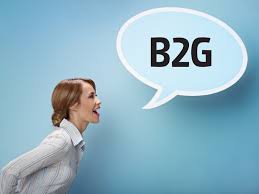Following in the footsteps of the European governments, the US federal government has decided to make electronic invoices mandatory for all B2G transactions by 2018. As the single largest purchaser of goods and services in the country, the US federal government processes more than 19 million invoices each year. Although currently 40 percent of these invoices are processed electronically, the rest uses a mix of digital and manual processes. This not only adds up to government’s expenditure relating to late payment fee, but also keeps open a number of tax-evasion loopholes. The amount thus wasted could well have been spent on social welfare purposes. According to experts, e-invoicing can go a long way in addressing these issues. A switch to e-invoices is expected to enable the government control tax frauds better, improve its earnings from tax revenues. E-invoices are likely to improve the government’s auditing capabilities and help it track down the companies that do not pay their taxes. All these considerations have led the US government to mandate all-electronic B2G invoicing by 2018.
The Reaction
Not all businesses are happy with the federal government’s decision though. Many, especially the multinational companies, view the mandate as a scheme to complicate the buying and selling process. It’s needless to say that their fears are completely baseless. Compulsory digitization of bills will bring in so many business process improvements that it would benefit business owners in ways beyond their imagination.
Here are a few ways in which the government’s new mandate is likely to benefit the businesses:
Provides Business a Better Picture of What Consumers Want
Indication of the future lies in the past behavior – this old adage holds true when it comes to drawing out a customer satisfaction strategy. And e-invoicing provides just that. It provides greater insight into the consumers’ past and present purchasing behavior. This tells businesses what their consumers want and exactly where to focus their efforts.
Increases Efficiency of Business Process
E-invoices help streamline the accounts payable process by validating invoices against purchase orders and goods receipts. This is particularly beneficial for businesses that have to manage a large inventory. A consolidated view of all the items purchased enables business owners to better analyze their stocks. It helps sort out the items they need the most from the ones that don’t fall under the most-wanted category. This in turn enables them to prioritize their purchases, subsequently optimizing the cash flow.
It Helps to Cut down Operational Costs
According to the Economist, a paper invoice cost Mexican businesses approximately $ 12.50 a piece. As far as the US is concerned, the cost will be more or less the same. Wondering what makes a simple paper document that costly? Well, consider its printing and delivery costs, add to it the expenses that the companies have to bear to store them safely and securely, and you will get your answer. E-invoicing helps eliminate most of these expenses. It’s not only more cost-effective, but is good for the environment too. Going paperless thus helps companies enjoy an enhanced brand image.
Widens the Scope for Supply Chain Financing
With big companies such as Nestle, Metro, Volvo and many more leveraging this technique, supply chain financing is big in the corporate sector, and invoicing opens up opportunities for Supply Chain Financing. The system requires suppliers to submit approved invoices to their banks and get paid immediately. Buyers may make payments to the bank later. Thus the system allows the buyer to pay later and the supplier to secure its money early, facilitating a win-win situation for both the parties but without any significant risk, thanks to the involvement of the bank. The system allows both buyers and suppliers to improve their working capital – an important benefit in a cash-strapped economy.
This list of benefits can be an eye-opener for apprehensive entrepreneurs, who fear that the mandatory use of electronic invoices may make B2G transactions more daunting. It is clear that by mandating e-invoicing, the government is actually promoting a more business-friendly environment. As the digitization starts to curb corruption and tax evasions, the entire economy will reap the advantages from its ripple effect.
